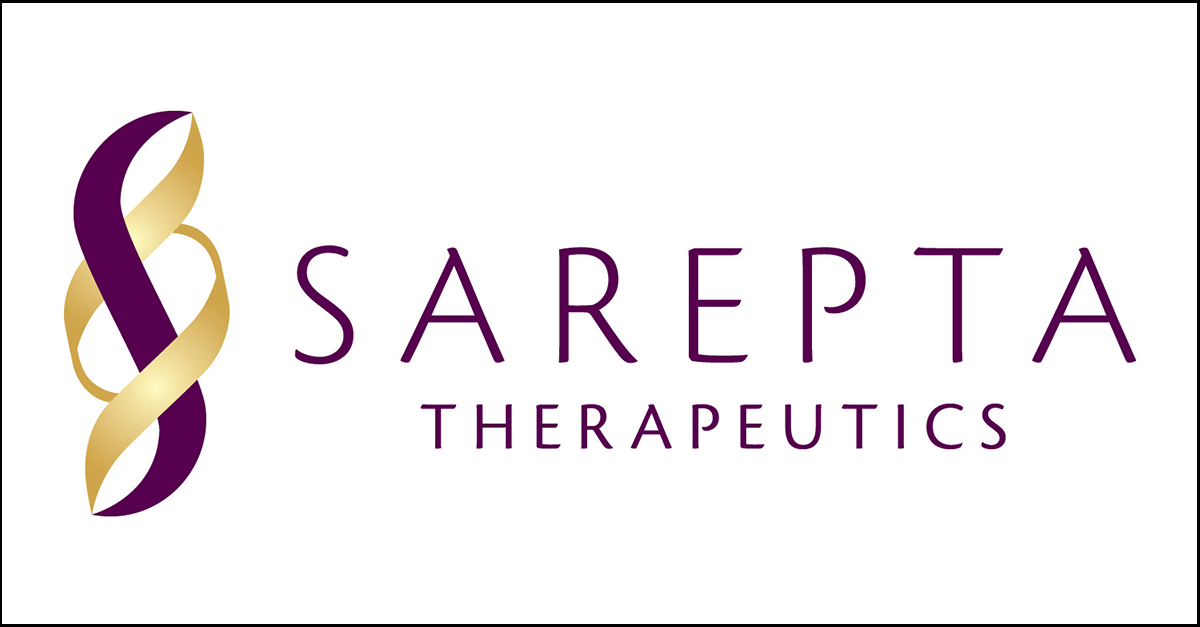
Sarepta Therapeutics today announced its intention to file for FDA approval of SRP-9001 this fall using the FDA’s accelerated approval pathway. SRP-9001 is an investigational gene transfer therapy intended to deliver the micro-dystrophin-encoding gene to muscle tissue for the targeted production of the micro-dystrophin protein.
Should the FDA accept Sarepta’s Biologics License Application (BLA) submission and agree to priority review, the company anticipates the FDA will review the application in the first half of 2023. If the accelerated approval pathway is successful, Sarepta’s ongoing Phase 3 EMBARK study would serve as the confirmatory study, which is a requirement for products approved through the accelerated approval pathway in order to confirm their predicted benefit. Additionally, Sarepta plans on continuing studying SRP-9001 in non-ambulatory populations, anticipating trial initiation later this year.
We look forward to Sarepta reaching this exciting milestone of a BLA submission and review and will continue to share updates as they are available!
Read Sarepta’s Community Letter
Community Bulletin: Intent to Submit an Accelerated Approval Biologics License Application for SRP-9001
Dear United States Duchenne Community,
Today, Sarepta announced its intention to submit a Biologic License Application (BLA) for SRP-9001 (delandistrogene moxeparvovec) this fall using the U.S. Food and Drug Administration’s accelerated approval pathway. This letter provides some background on the accelerated approval process and Sarepta’s current assumptions around timing for regulatory submission and review.
FDA has a number of ways to accelerate the availability of treatments for serious diseases. Nearly 30 years ago, the FDA established the Accelerated Approval pathway to expedite the availability of novel treatments that address urgent and unmet medical needs of patients with serious and often life-threatening diseases. Accelerated approval has been used to bring forward treatments for many diseases, including cancer, HIV, and rare diseases such as Duchenne.
As part of its BLA seeking accelerated approval in ambulant individuals with Duchenne, Sarepta plans to provide both biologic and functional data from its studies of SRP-9001. Accelerated approval requires that a post-marketing confirmatory trial is performed to verify the predicted benefit. Importantly, the company is working with clinicians, study participants, and their families to complete the EMBARK study, a phase 3 pivotal trial evaluating SRP-9001 for the treatment of Duchenne, which is anticipated to serve as the confirmatory trial. The company continues to study SRP-9001 in patients with Duchenne who are non-ambulatory and plans to initiate a phase 3 study later this year.
In addition to pursuing the accelerated approval pathway for SRP-9001, the company will also seek priority review. Priority review is a designation given, if certain criteria are met, to a regulatory application with a goal of completing a review of the application within 6 months of file acceptance. It can be used in combination with other FDA expedited programs such as accelerated approval to expedite the availability of treatments for serious diseases.
Should the FDA accept the company’s BLA submission and agree to priority review, we anticipate the FDA will review the application in the first half of 2023.
We are grateful to all of the patients and families participating in clinical studies, as it is your commitment that helps advance science. If you are a member of the U.S. Duchenne community and have any questions about this communication, please contact Patient Affairs at: advocacy@sarepta.com.
Thank you,
The Sarepta Patient Affairs Team
Read the full community letter.
Read Sarepta’s Press Release
Sarepta Therapeutics Announces Intent to Submit an Accelerated Approval Biologics License Application for its Gene Therapy SRP-9001 to Treat Duchenne Muscular Dystrophy
07/29/22 7:00 AM EDTCAMBRIDGE, Mass., July 29, 2022 (GLOBE NEWSWIRE) — Sarepta Therapeutics, Inc. (NASDAQ:SRPT), the leader in precision genetic medicine for rare diseases, today announced its intent to submit a Biologics License Application (BLA) seeking accelerated approval for SRP-9001 (delandistrogene moxeparvovec) to treat ambulant individuals with Duchenne muscular dystrophy. SRP-9001 is an investigational gene therapy for Duchenne being developed in partnership with Roche.
“We are delighted to confirm that based on the feedback we received following a thorough and in-depth review, we intend to submit a BLA for our SRP-9001 gene therapy to treat Duchenne muscular dystrophy this fall. We look forward to a collaborative review commencing this year and running through the first half of 2023,” said Doug Ingram, president and chief executive officer, Sarepta Therapeutics. “Duchenne robs children daily and hourly of their muscle, stealing them bit by bit from their families and loved ones. Guided by rigorous science and productive regulatory discussions, our goal is to move with the urgency desperately needed by the patient community, and our upcoming BLA filing for SRP-9001 serves that goal.”
SRP-9001 was granted Fast Track designation in July 2020, an FDA process designed to facilitate the development and expedited review of drugs that treat serious conditions and fill unmet medical needs. In addition to Fast Track, SRP-9001 has also been granted Rare Pediatric Disease (RPD) designation in the United States, and Orphan Drug status in the United States, the European Union, Switzerland and Japan.
About SRP-9001 (delandistrogene moxeparvovec)
SRP-9001 (delandistrogene moxeparvovec) is an investigational gene transfer therapy intended to deliver SRP-9001 to muscle tissue for the targeted production of functional components of dystrophin. Sarepta is responsible for global development and manufacturing for SRP-9001 and plans to commercialize SRP-9001 in the United States upon receiving FDA approval. In December 2019, Roche partnered with Sarepta to combine Roche’s global reach, commercial presence and regulatory expertise with Sarepta’s gene therapy candidate for Duchenne to accelerate access to SRP-9001 for patients outside the United States.



 by: Parent Project Muscular Dystrophy
by: Parent Project Muscular Dystrophy

